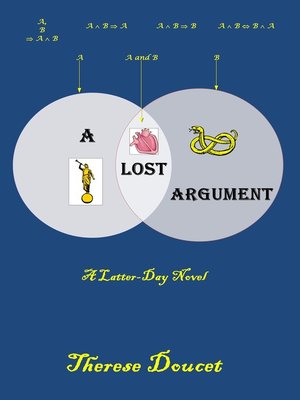
Sign up to save your library
With an OverDrive account, you can save your favorite libraries for at-a-glance information about availability. Find out more about OverDrive accounts.
Find this title in Libby, the library reading app by OverDrive.



Search for a digital library with this title
Title found at these libraries:
| Library Name | Distance |
|---|---|
| Loading... |
The summer after her freshman year at all-Mormon Brigham Young University, Marguerite Farnsworth falls in love with philosophy by way of falling in love with an atheist philosophy student. Her search for Truth (with a capital T), God, the meaning of life, and a boyfriend leads her away from religious belief, but along the way she learns there are things even atheists can have faith in.
"Blasphemous!" - Hemant Mehta, author of I Sold My Soul on eBay: Viewing Faith Through an Atheist's Eyes
"[A] realistic and heartfelt portrait of the ups and downs of life and love for young people who don't fit the perfect Mormon mold." - Main Street Plaza
"I found this book with its portrayal of the stark realities of relationships and the challenges of existence a clear-eyed examination of some of life's most difficult questions. What I loved most about the book was that it did not shy away from going more deeply into philosophy than about any book I can remember since The Elegance of the Hedgehog. It follows a path that ranges from Kierkegaard to the Marquis de Sade ... it's clear that the author understands the existential difficulties of a faith journey." — Steven L. Peck, author of The Scholar of Moab
"[A Lost Argument] defies exclusive categorization ... I think anyone who has progressed from a 'simple' view of faith to an increasingly complex and nuanced view of faith through critical study of philosophy, theology, and the scriptures would find something to appreciate in A Lost Argument ... Mormon or not, theist or not, anyone who advocates for the liberal arts and its capacity to develop and sharpen a person's thinking should read this novel." — Irresistible (Dis)Grace
"Marguerite transforms and matures (fitfully and awkwardly, at times) through a dialogue not only with the other living characters, but with the conflicting parts of herself, and with writers and philosophers dead and gone whose ideas still live on." — Wheat and Tares
"This is a great book for discussion. Philosophy and faith are difficult topics to write about and sometimes harder to read. Therese [Doucet] did a wonderful job." — Goodreads







